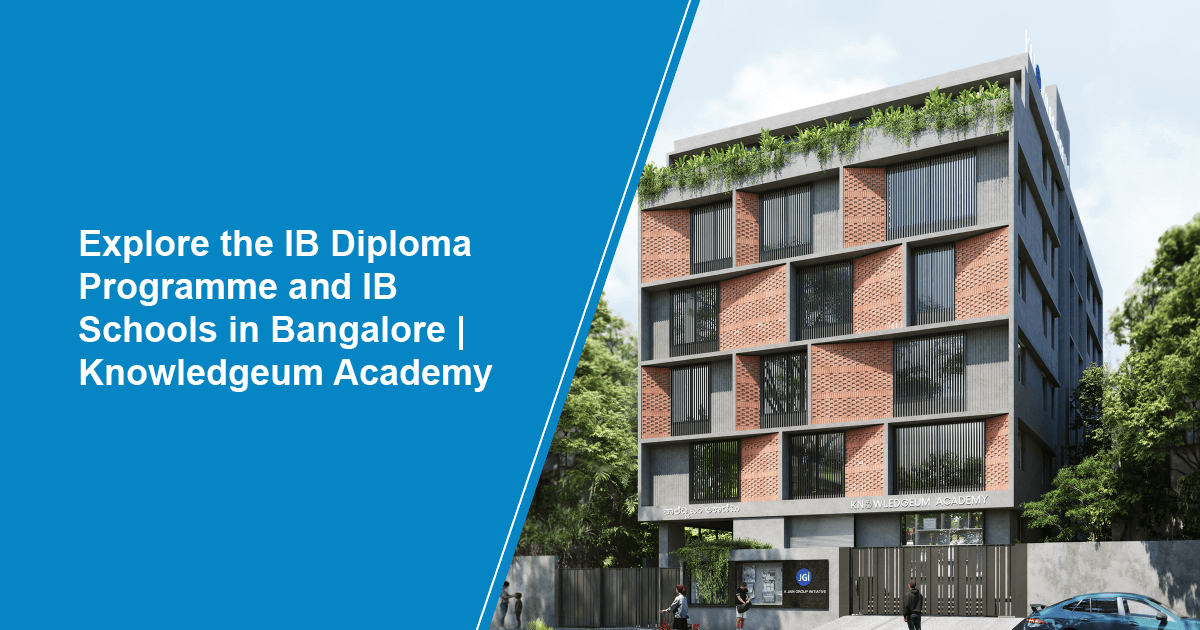The International Baccalaureate Organisation (IBO) is among the leading international school education boards in the world. With its headquarters in Switzerland, the school is affiliated with more than 5600 schools in over 160 countries. The IB Diploma Programme (IBDP) is the first course that was offered by the IB board for students who aspired to internationally reputed colleges. Today, the board offers 3 other programmes besides the IBDP for learners in the age group of 3 to 19 years. IB board’s objective is to make their learners critical thinkers who have strong international-mindedness. International Baccalaureate schools in Bangalore
have a direct affiliation with the IB board and follow their stringent guidelines in imparting the curriculum to maintain the high standards set by the board.
IBDP has six academic subject groups plus the DP Core which has three elements. The DP core elements are -
A learner can choose the subject from each of the subject groups at Higher Level (HL) or Standard Level (SL) depending on the intensity at which they wish to study the subject. It is compulsory to take at least 3 subjects at HL. The top IB schools in Bangalore such as the Knowledgeum Academy have admission counsellors and academic counsellors who guide learners in choosing the subjects. The six subject groups and the subjects in them are -
| Group 1: Studies in Language and Literature Course aim: to ingrain a lifelong appreciation of literature and interest in language among the students. Here there are three alternatives for the learner to choose from. |
|
| Course Name | Levels |
| Language A: Literature | SL and HL |
| Language A: Language & Literature | SL and HL |
| Literature and Performance | SL |
| Group 2: Language Acquisition Course aim: to help learners acquire competency in a foreign language and appreciation for a new culture. |
|
| Course Name | Levels |
| Classical Languages | SL and HL |
| Language ab initio | SL |
| Language B | SL and HL |
| Group 3: Individuals and Societies Course aim: to help learners develop a critical appreciation of human societies and behaviour and learn about different institutions and environments. |
|
| Course Name | Levels |
| Business Management | SL and HL |
| Economics | SL and HL |
| Geography | SL and HL |
| Global Politics | SL and HL |
| History | SL and HL |
| Information Technology in a Global Society | SL and HL |
| Philosophy | SL and HL |
| Psychology | SL and HL |
| Sociology and Cultural Anthropology | SL and HL |
| World Religions | SL and HL |
| Group 4: Sciences Course aim: to study the physical and technological sciences through the application of scientific methods. |
|
| Course Name | Levels |
| Biology | SL and HL |
| Chemistry | SL and HL |
| Computer Science | SL and HL |
| Design Technology | SL and HL |
| Environmental Systems and Societies | SL and HL |
| Physics | SL and HL |
| Sports, exercise, and health science | SL and HL |
| Group 5: Mathematics Course aim: to teach mathematical concepts and principles and develop logical and critical thinking |
|
| Analysis and Approaches | SL and HL |
| Applications and interpretations | SL and HL |
| Group 6: The Arts Course aim: learners can choose to pursue artistic endeavours and learn techniques and concepts in their field of interest. |
|
| Dance | SL and HL |
| Film | SL and HL |
| Music | SL and HL |
| Theatre | SL and HL |
| Visual Arts | SL and HL |
Learners have the alternative of substituting Group 6 subjects with additional subjects from Groups 1,2,3, or 4.
DP core is a compulsory element and IB curriculum schools in Bangalore such as the Knowledgeum Academy will internally assess these elements, though the final results may be reviewed by the IBO.
Unless the learner completes the DP core, they will not be awarded the IB Diploma even if they score good marks in the other subjects.
IB schools in Bangalore like the Knowledgeum Academy offer these high-demand subjects or for which they have excellent teaching faculty. So, one must check if the school offers the subjects that they want or if they have any suitable alternatives. One must also check if they are offering the activities for sports and creative engagement that one is interested in.
© Knowledgeum Academy
